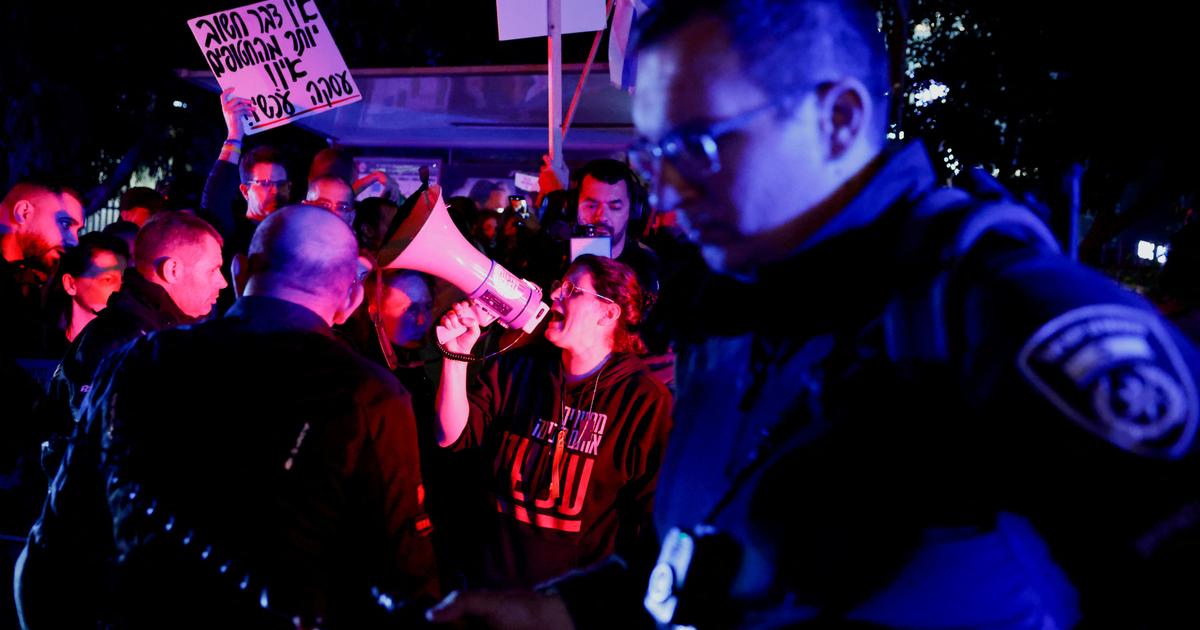The Foreign Minister, Yair Lapid (left), and the Prime Minister, Naftali Bennett, on Wednesday in the Israeli Parliament. ABIR SULTAN (EFE)
Israel is heading for the fifth in elections in just over three years.
The Knesset (Parliament) has approved this Wednesday the dissolution of the Chamber through a preliminary vote on a law, which is expected to be ratified next week through successive confirmations by the plenary session.
After the final approval of the law, the Minister of Foreign Affairs, the centrist leader Yair Lapid, will replace the ultra-nationalist Naftali Bennett as acting Prime Minister, who has held office since June 2021, until the formation of the new Government emerged from the legislative elections advanced to next fall.
Two days after the verification of the failure of the heterogeneous coalition that removed conservative Benjamin Netanyahu from power 12 months ago, the eight parties that provisionally still comprise it have rushed to start the legislative process to put an end to the legislature.
The bill will now be processed urgently in committee and will return to the plenary session for ratification, expectedly in the first days of next week.
In a joint appearance televised from the Knesset, Bennett and Lapid announced on Monday their willingness to dissolve the House and advance the elections after having lost the majority due to the flight of at least three conservative deputies and the breakdown of voting discipline by two Arab parliamentarians.
"We have exhausted all attempts to stabilize the coalition," Bennett acknowledged.
Backed by eight parties that range from the ultranationalist right to the pacifist left, passing through an Islamist Arab formation (the first political precedent in Israel), the so-called change government has crashed against its internal divisions on the Palestinian question.
Two weeks ago, the coalition failed in the Knesset in the attempt to extend the validity of the "provisional" legislation that extends, since 1967, Israeli civil rights to the nearly 450,000 settlers settled in the West Bank, which anticipated an imminent rupture.
The outgoing Cabinet had as a minimum common denominator to prevent the return to power of Netanyahu's Likud party, who had led all the Israeli Executives during the previous 12 years.
The coalition agreement provided for a rotation in the post of prime minister in favor of Lapid, 58, a true strongman of the coalition, in the event of the dissolution of the Knesset.
Like Bennett, Lapid was also Netanyahu's minister, between 2013 and 2015. The centrist leader, a secular radical reformer, was a celebrated television journalist before entering politics a decade ago.
Already from the top of power, he hopes to give the electoral battle against Netanyahu after having had to sacrifice his leadership twice.
Three years ago he took a step back from former General Benny Gantz.
And again a year ago, he ceded the formal leadership of the government to the right-wing Bennett, whom he doubles in number of seats in the Knesset.
The polls point to a new tie
If, as everything seems to indicate, the fifth call to the polls for this fall is confirmed, Netanyahu, 72, will fight to leave the position of leader of the opposition, in which he has languished for a year, to return to power .
His main objective, the political analysts of the Hebrew press agree, is to pass legal reforms that free him from the process for corruption in which he has been on trial for two years in a court in Jerusalem.
The effort appears complex in view of the voting intention polls, which coincide in predicting a tie between the nationalist and religious right-wing bloc, headed by Netanyahu, and the center-left (plus the blockade of the Arab parties), at whose head Lapid hopes to place himself.
Four surveys published this Wednesday by the Hebrew media highlight Likud as the party with the best options, with more than a quarter of the seats in the Knesset, and Netanyahu as the most popular leader, with up to 51% valuation against the 30% Lapid.
The political polarization, which had apparently been parked during the year of the government of the change, is now preparing to return with force in a long campaign.
He will face in "a pugilistic combat", in the words of the director of
Haaretz,
Aluf Benn, in an analysis published this Wednesday, to the two most charismatic leaders and with the greatest public projection of Israel.
Follow all the international information on
and
, or in
our weekly newsletter
.

/cloudfront-eu-central-1.images.arcpublishing.com/prisa/56B7BPWXRSG6VASADUYG2JAM3M.jpg)








/cloudfront-eu-central-1.images.arcpublishing.com/prisa/2C5HI6YHNFHDLJSBNWHOIAS2AE.jpeg)



